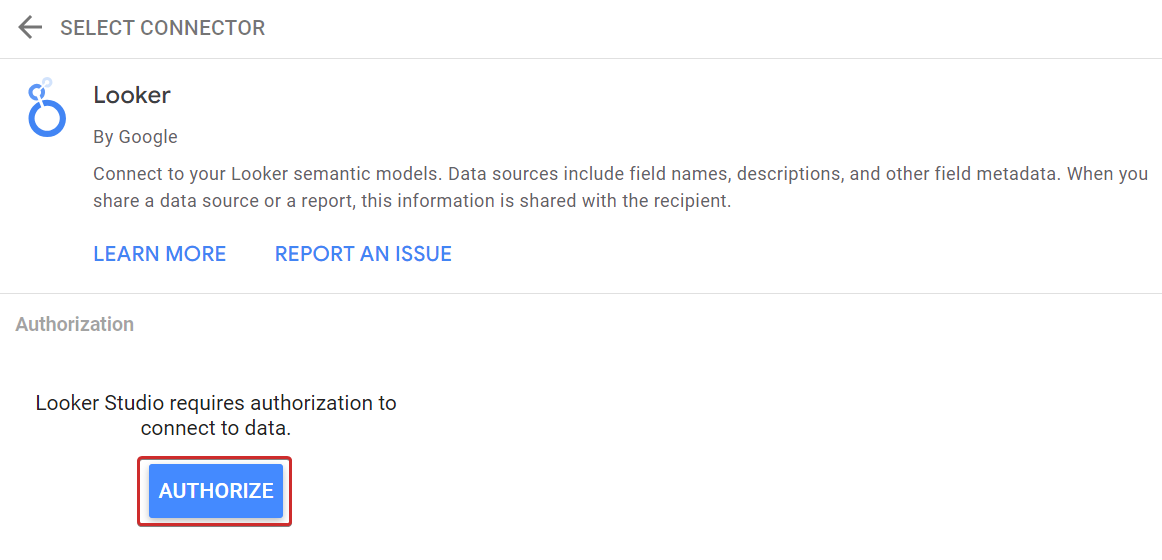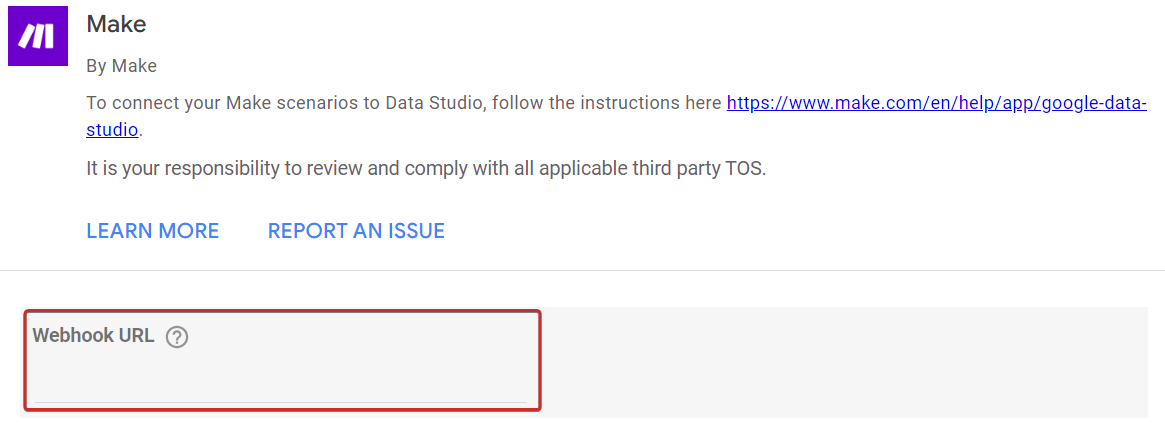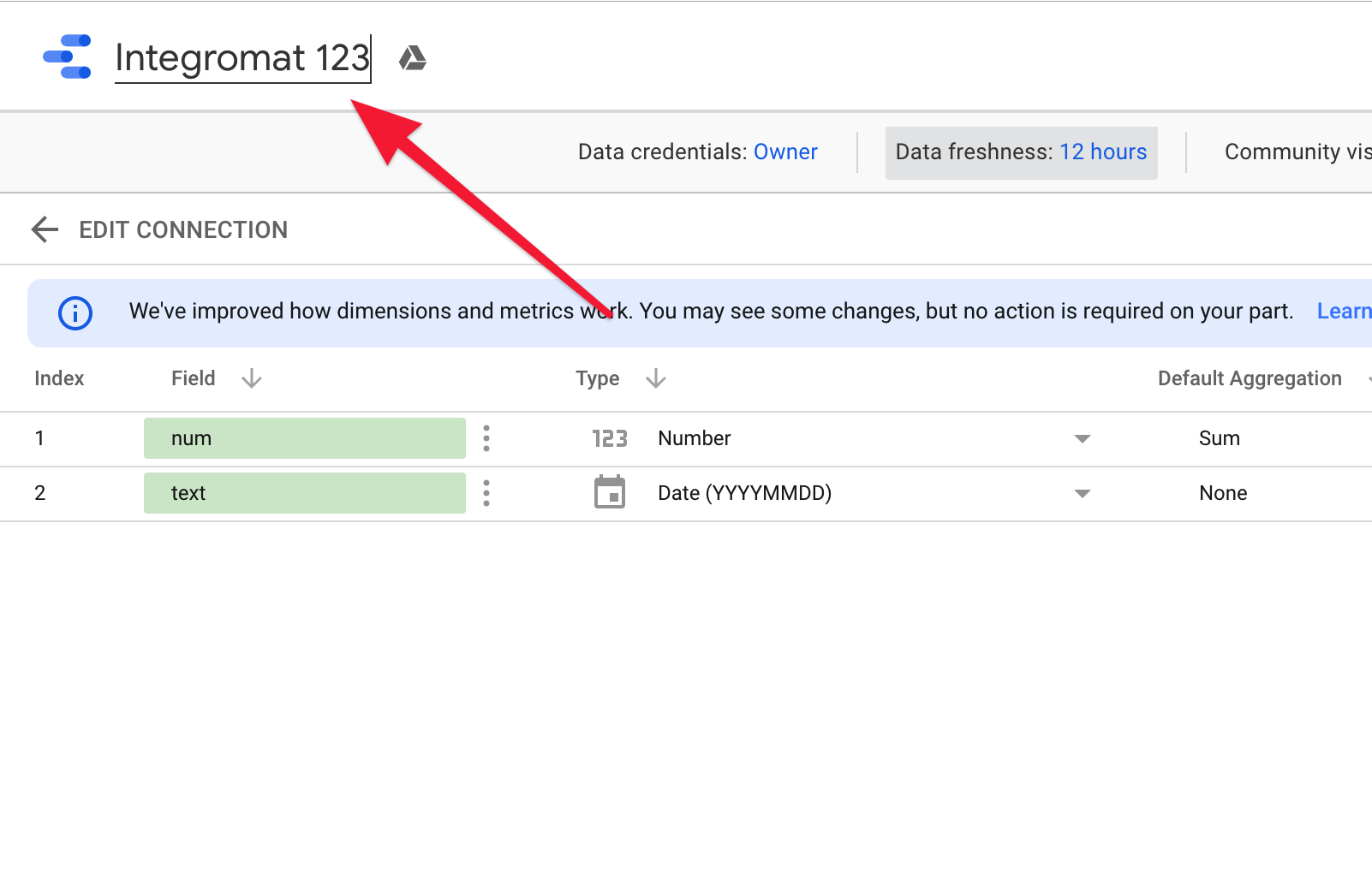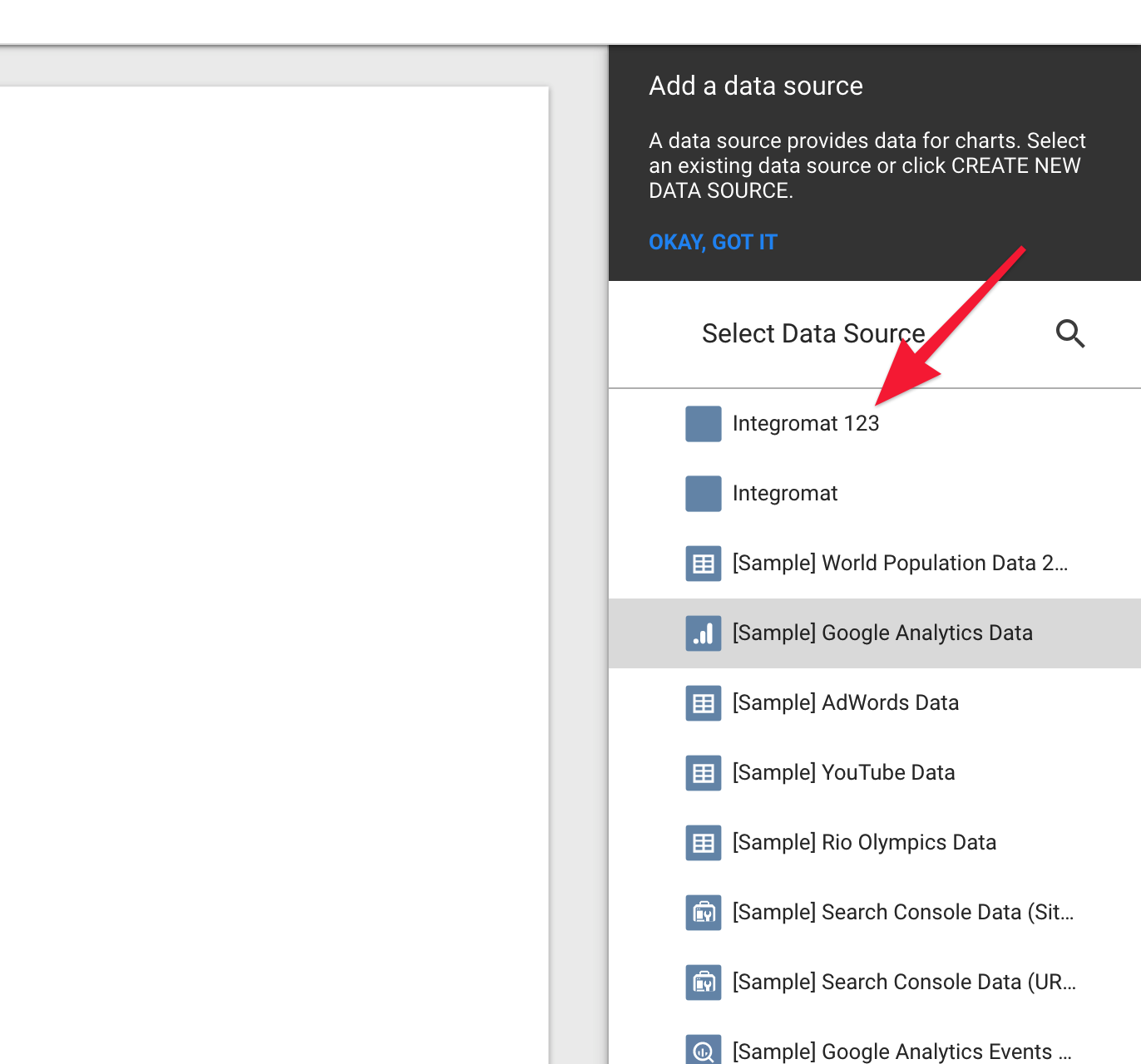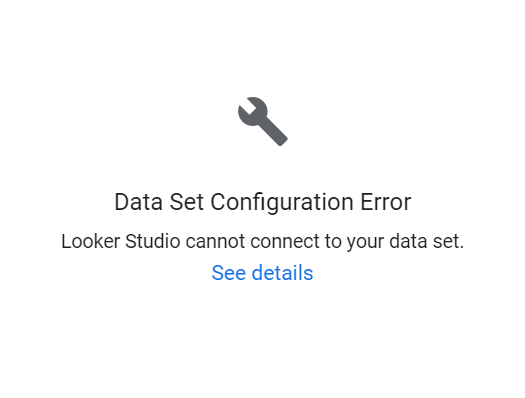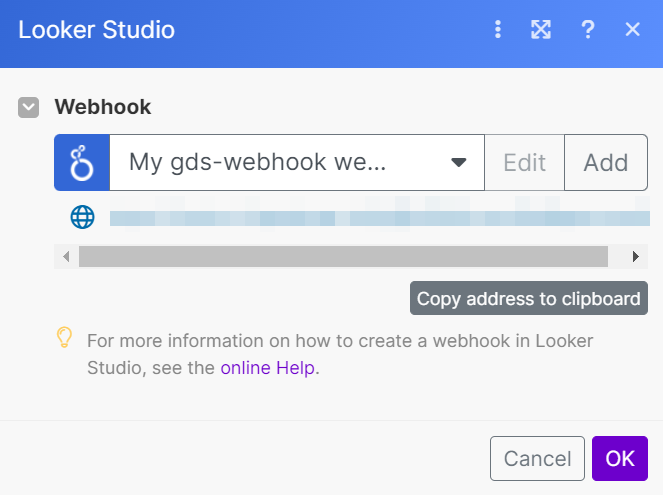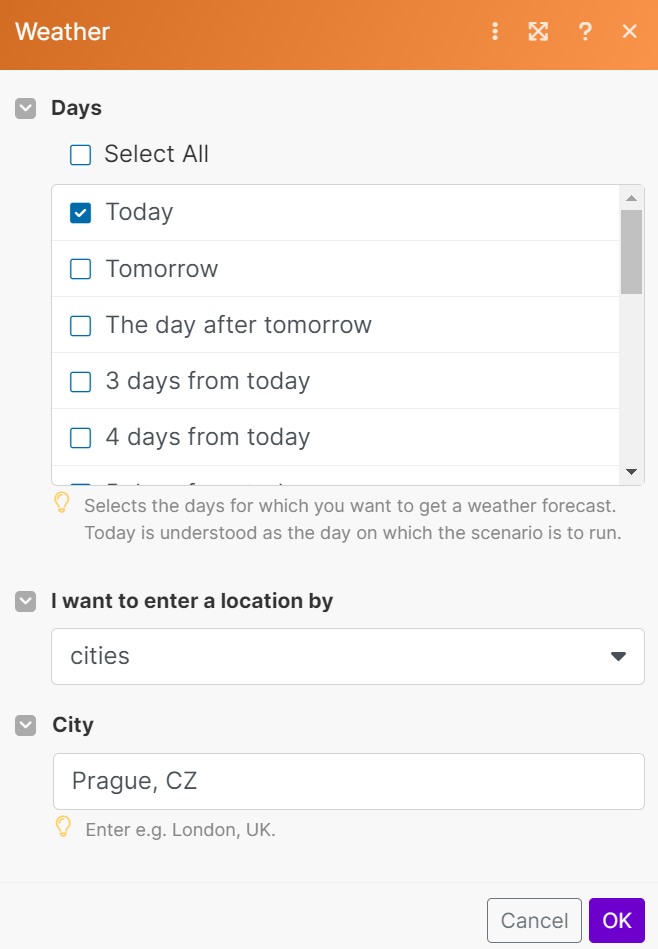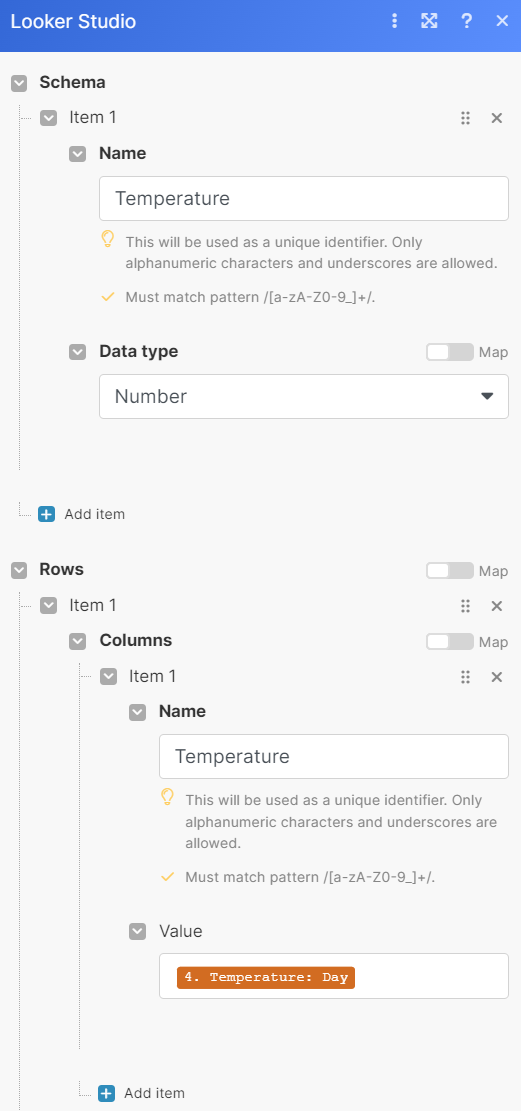Business Intelligence - Looker Studio
Modified on Mon, 12 Aug, 2024 at 2:58 PM
To access Looker Studio, a Google account is needed. You can log into Looker Studio or create an account on the Looker Studio page.
A Make Data Source created and authorized in Looker Studio.
A created (and executed) scenario
Warning
To establish a connection to Looker Studio you must create and run your scenario beforehand! See the instructions below.
Note
Make's use and transfer of information received from Google APIs to any other app will adhere to Google API Services User Data Policy.
Create your scenario.
Note
You must run the scenario before you connect to the Make data source in Looker Studio.
Each Looker Studio scenario in Make must have at least two modules: the webhook, New Request (the first module in the scenario) and the responder/aggregator, New Response (the last module in the scenario in which you must specify a structure for your data). Between these two modules, you should place other modules.
Use the New Request module to generate a webhook URL.
Copy the Webhook URL to use it in step 6.
Save the scenario and Run it by clicking the Run Once button
Click the following link to add the Make data source to Looker Studio:
To confirm the action click on the AUTHORIZE button.
Sign-in using your Google account credentials and grant access rights by clicking on the ALLOW button.
Paste the Make webhook URL - use the webhook URL from step 1.
Click on the CONNECT button in the top-right corner.
Rename the Data Source if needed:
Add the data source to your report.
This module must be the last module in your scenario. It sends collected data to Looker Studio.
Source module | Select the source module you want to collect the data from. |
Schema | Set Name and Data type. NoticeThe Name field will be used as a unique identifier. Only alphanumeric characters and underscores are allowed. E.g. instead of "Campaign ID" enter "Campaign_ID". You can set a more user-friendly name in the Label field under the Show advanced settings option. |
Group by | Here you can define an expression containing one or more mapped items. The aggregated data will be then separated under Groups with the same expression's value. Each Group outputs as a separate bundle and contains a Key with the evaluated expression and the aggregated text. By doing this, you can use the Key as a filter in subsequent modules. |
Stop processing after an empty aggregation | Enable this option to stop the scenario when no data is received. |
Values | Enter Name and Value. |
Warning
The name of the Name field in the Schema section must be the same as the name of the Name field in the Values section.
If you get this error message, make sure that:
You run your Make scenario before performing an action in Looker Studio.
The webhook in your active New Request module matches the webhook URL used in the Make Looker Studio data source.
The following scenario will collect data from the Weather > Get Daily Weather Forecast module and will create a chart in the Looker Studio.
Was this article helpful?
That’s Great!
Thank you for your feedback
Sorry! We couldn't be helpful
Thank you for your feedback
Feedback sent
We appreciate your effort and will try to fix the article


